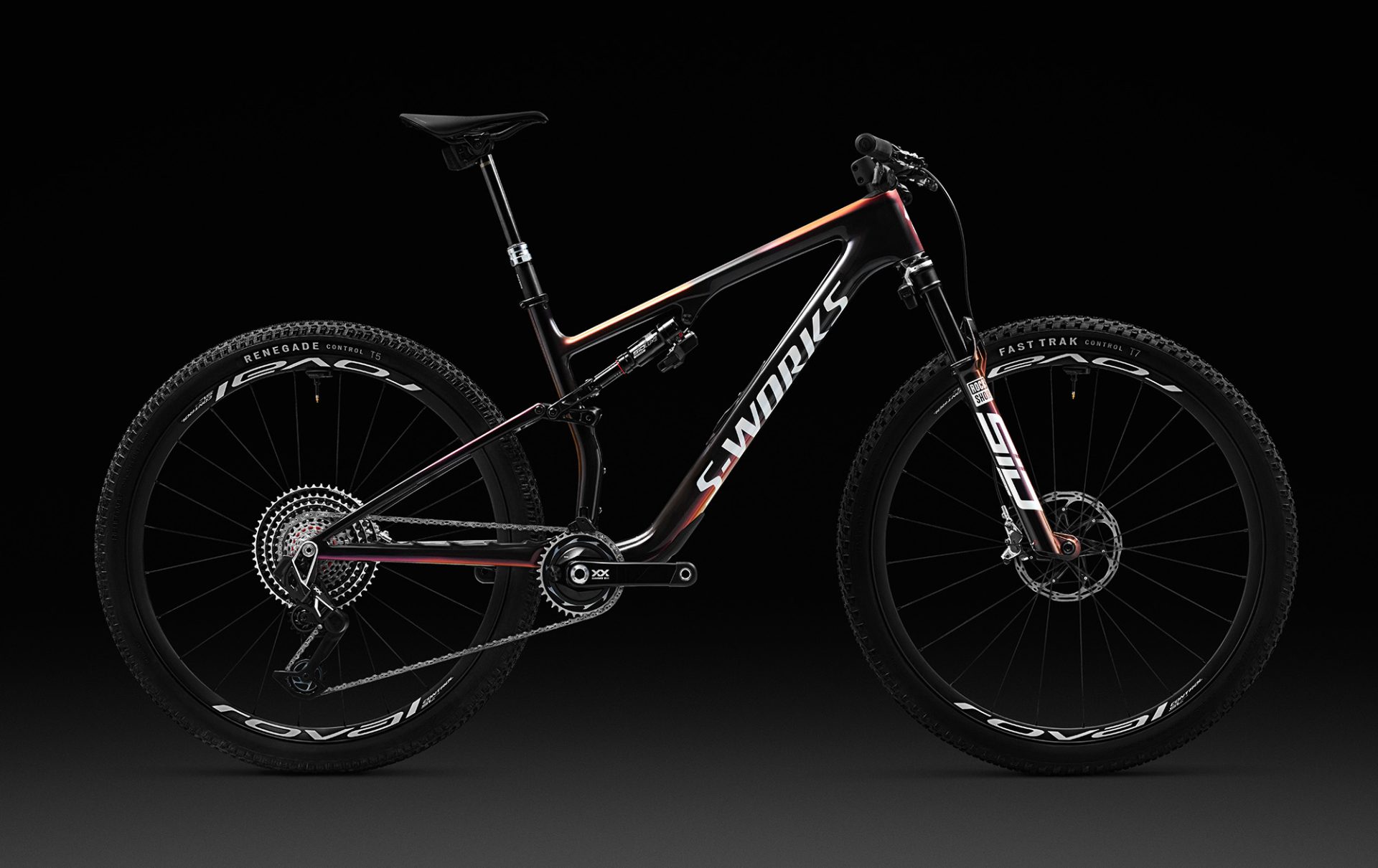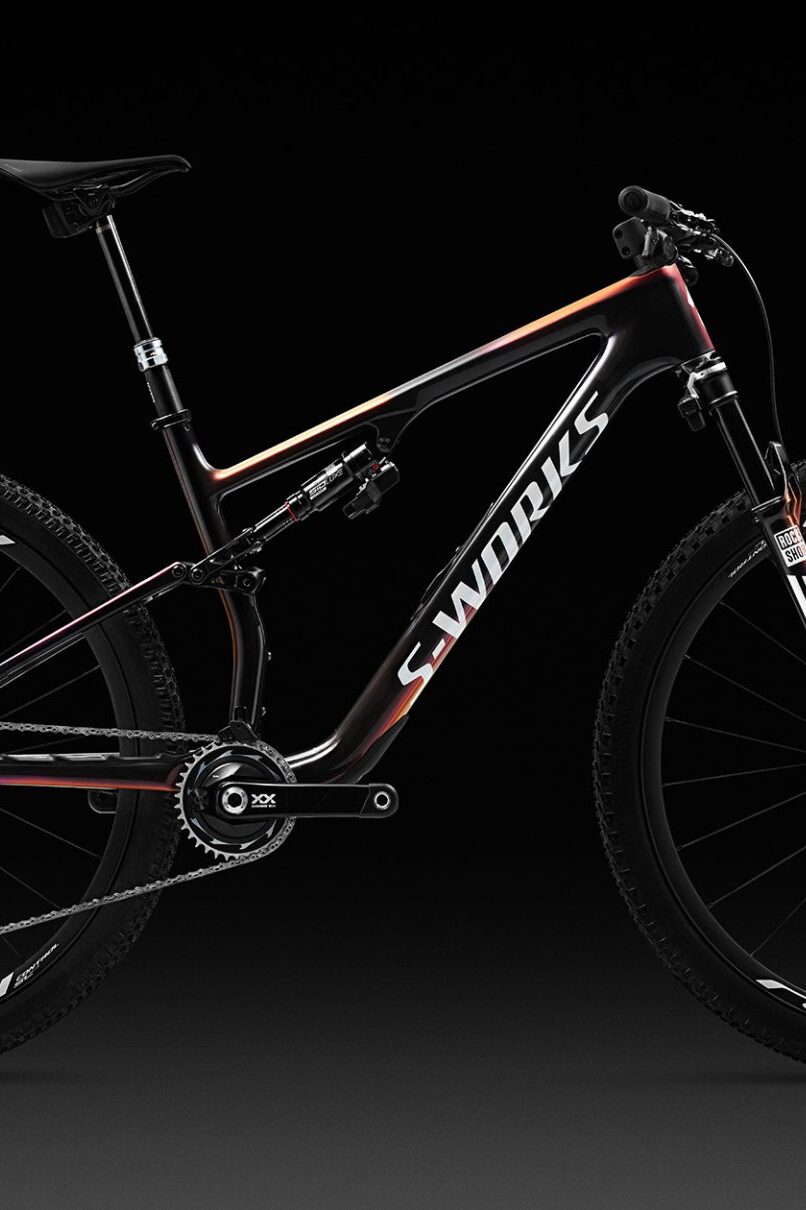Coinciding with the release of RockShox’s new Flight Attendant suspension, Specialized has revealed its highly anticipated update to its Epic cross country platform. Many wouldn’t have expected two new bikes to join the race-focussed and highly polarising Epic World Cup, and yet, there are now three versions of the Epic.
Today Specialized lifted the lid on its new Epic 8, a race-focussed replacement for the previous Brain-equipped Epic. Meanwhile, the much anticipated new Epic Evo has also been revealed for those seeking a downcountry, lightweight trail, or whatever you want to call it bike.
This is just a brief overview of what’s new while we await a bike for review. A placeholder if you will.
Epic 8
A replacement for the formerly Brain-equipped Epic, the Epic 8 is Specialized’s answer to the modern cross-country race bike. It has 120 mm of front and rear travel that is now controlled with more traditional remote lockouts (or Flight Attendant for the fancy models). In many ways, the new Epic is now more closely comparable to what the previous Epic Evo offered, a bike that got plenty of use at World Cups in 2023.
Ok, so I can hear the cogs ticking over in the confusion as you think, “Hang on, isn’t the Epic World Cup (a bike we previously reviewed), with its hidden shock and limited sag, Specialized’s answer to a modern cross-country race bike?” It’s a good question, and Specialized knew its short-travel Epic World Cup would have limited appeal. The new Epic 8 features more progressive geometry matched with longer travel and more reactive (sag-full) suspension. It’s the bike we’ll likely see most pros using throughout the season, and is arguably the Specialized you’d pick for general cross-country and marathon racing.
That geometry can now be set in a choice of two positions via a flip chip at the yoke – high or low. Like many other bikes with this setting, the low position slackens the head angle and lowers the bottom bracket. Either way, the new Epic 8 is longer and lower than before, and well aligned with the more trail bike-like approach modern cross-country bikes have taken for the more challenging courses.
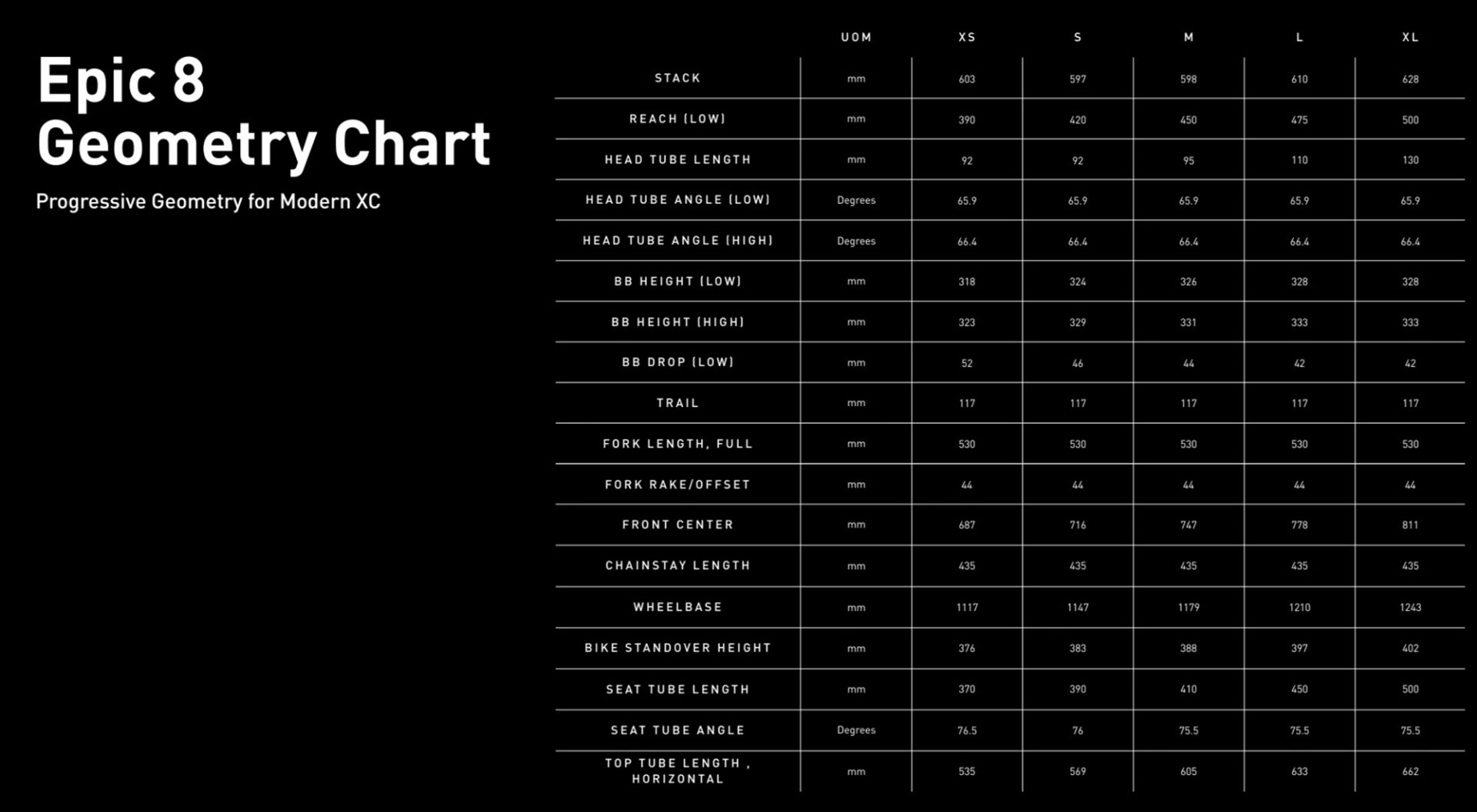
In addition to ditching the Brain technology in favour of a remote lockout, the Epic 8 features suspension in partnership with RockShox that offers a custom-tuned three-position damper (open, pedal, locked). The flex-stay suspension layout is said to offer more anti-squat than the former Epic Evo for improved pedalling performance, while also being more sensitive to bumps.
As seen previously with Specialized’s trail and enduro bikes, the Epic 8 now features a storage hatch within the downtube to conceal those spares. And another new feature is the steering stopping to prevent the shifters and brake levers from damaging the top tube. That feature is also seen in the Epic World Cup, but unlike that bike, the Epic 8 thankfully doesn’t route the brake hoses and cables through the headset.
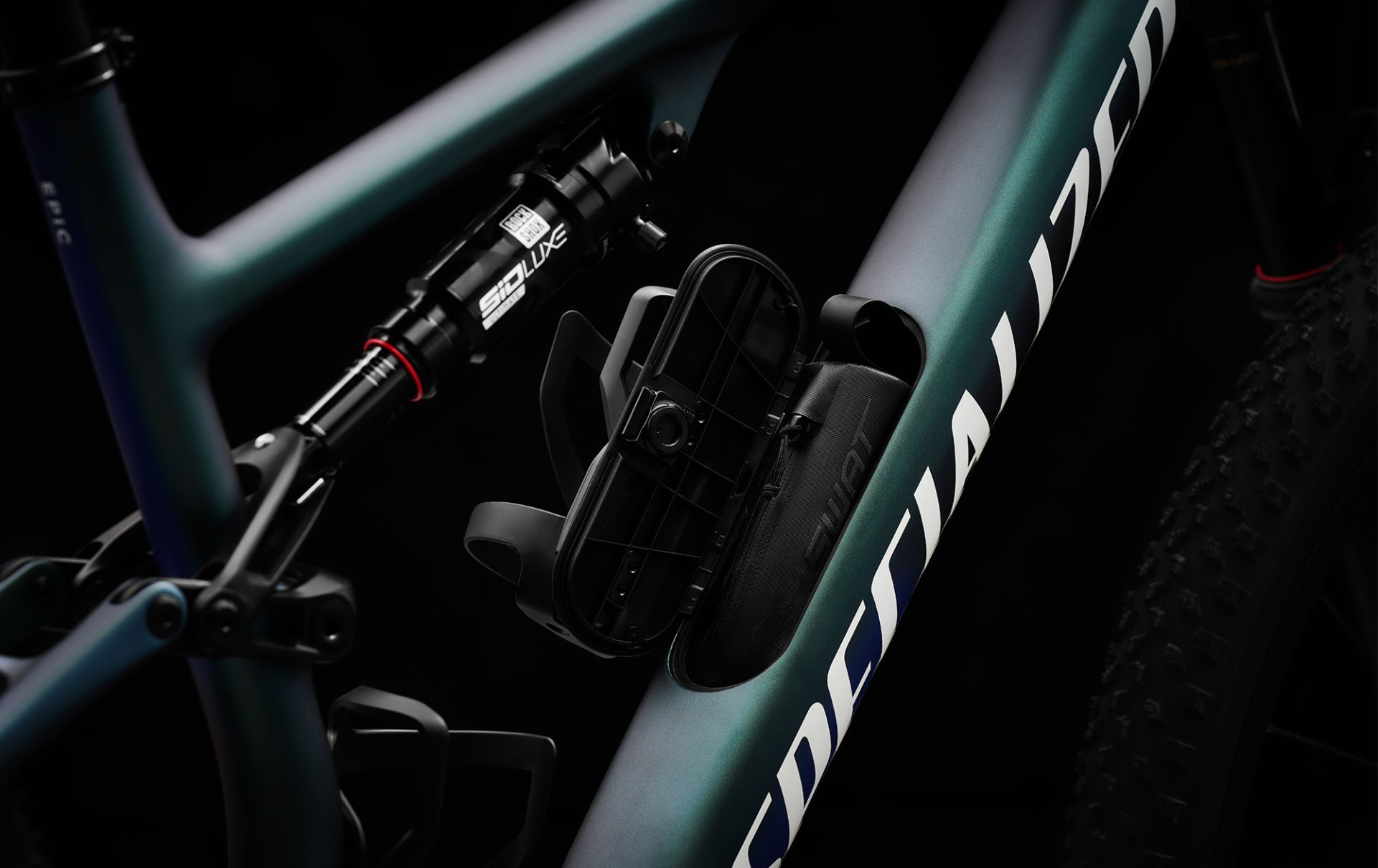
Losing the Brain has shaved weight, and the new Epic 8 S-Works claims to save 76 grams from the previous Epic S-Works – producing a medium frame weight of 1,720 g with the rubber frame armour peeled off and a standard SIDLuxe shock (thanks to veteran bike tester Guy Kesteven for this figure). That said, the previous – and now-discontinued – Epic Evo remains the lightest option from Specialized to date, while the addition of the storage hatch and longer travel to the Epic 8 means that such a benchmark number hasn’t been reached.
All models now feature dropper posts, four-piston brakes, and 29 x 2.3-inch tyres. The range starts with the Epic 8 Comp at US$5,000 / €5,200 / AU$7,500 and extends to the team-level Epic 8 S-Works at US$14,500 / €14,500 / AU$24,000. With a claimed weight of 10.87 kg (excluding pedals) and a price of US$9,000 / €9,500 / AU$14,800, the second-tier Epic 8 Pro looks like it may be a popular option with its RockShox SID Ultimate suspension (cabled lockouts), SRAM X0 Transmission shifting, spindle-based power meter, Bike Yoke Divine SL dropper, and Roval Control Carbon rims on DT Swiss 350 hubs.
Epic 8 Evo
As the Epic 8 occupies more of the space of the previous Epic Evo, the new Epic Evo now pushes even more into the lightweight trail category (aka downcountry) with 120 mm of rear wheel travel matched with 130 mm up front. For me, it sings of filling an important gap in Specialized’s range that has stood empty since the Camber was discontinued a handful of years ago (a lightweight trail model onto which many put a 130 mm fork).
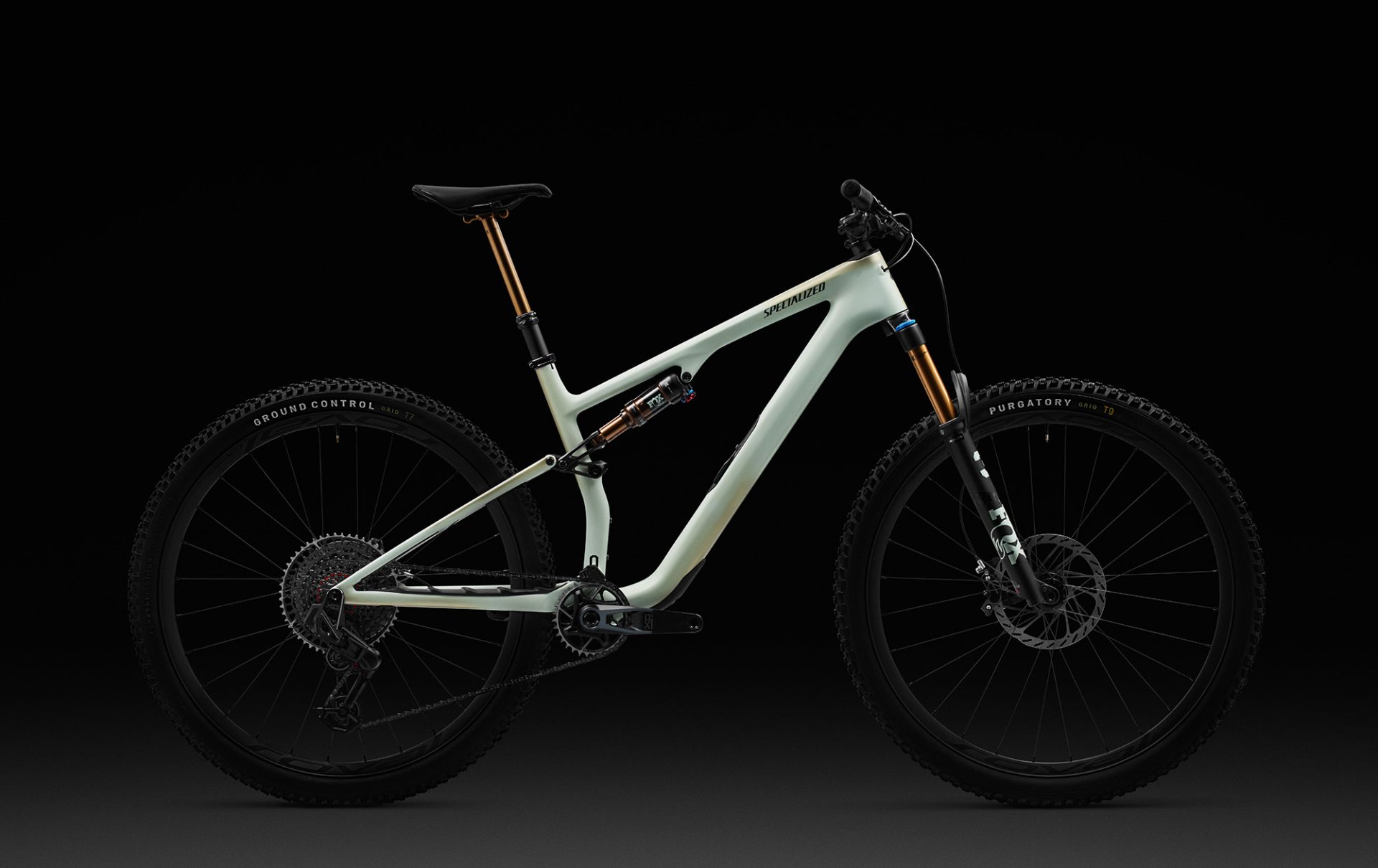
Bigger picture, the new Epic Evo effectively returns to where the original Epic Evo started – a bike that adds a more trail-centric build kit to what’s otherwise the same frame as the race bike. Here, the Epic Evo offers a change in suspension components, a shorter stem and higher rise bars, burlier tyres, and more gravity-centric brakes.
Adding 10 mm to the front fork helps to slacken the geometry even further, giving a longer front centre and subtly shorter reach figures. Where the Epic 8 is based on custom-tuned RockShox suspension with three damper positions, the Epic Evo moves to Fox suspension with a simpler two-position open or locked option.
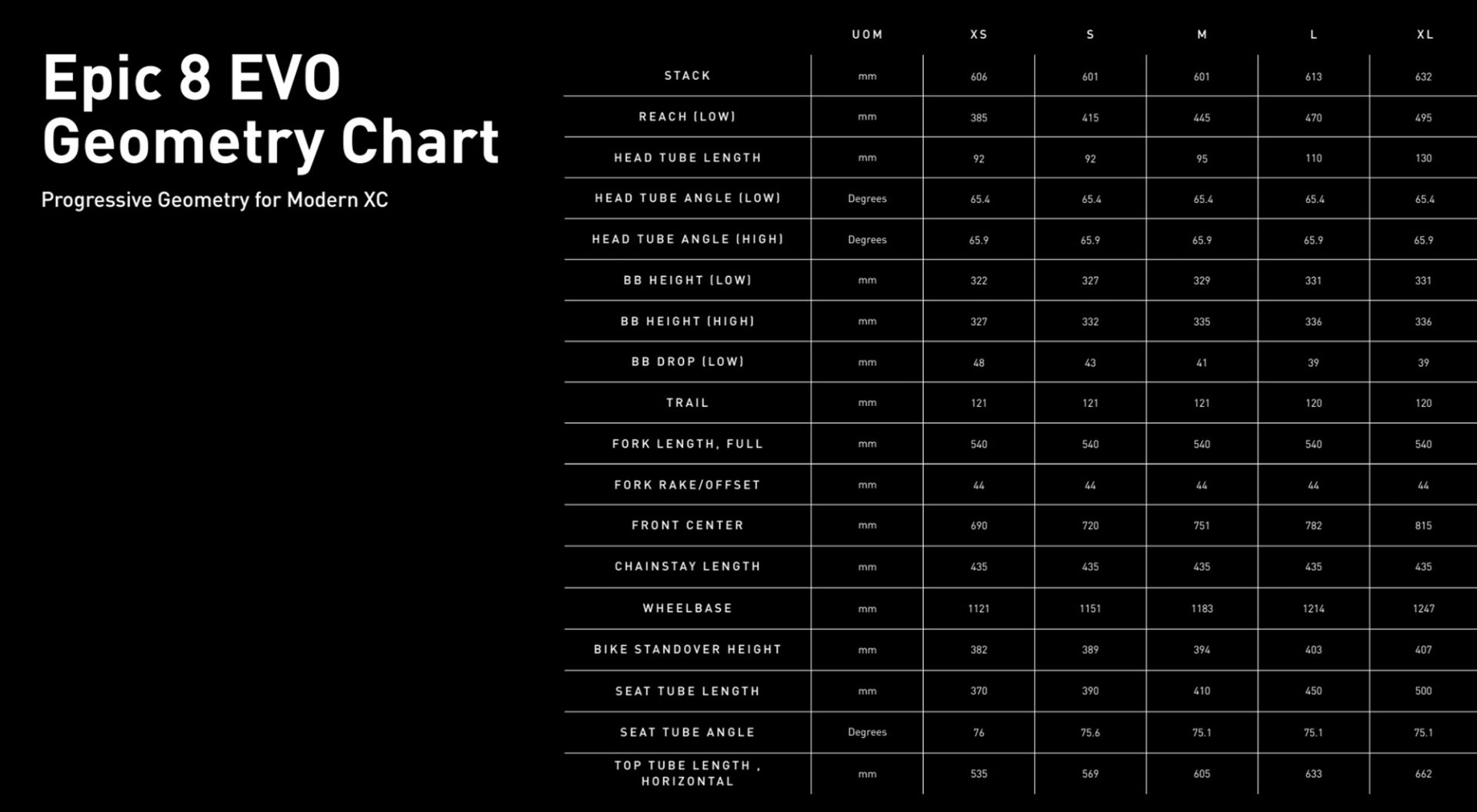
Despite using the same frame, the Epic 8 Evo is heavier than its racing counterpart, mostly due to the build kit, heavier Fox rear shock, and provided frame protection. It’s also worth noting that there is no ultra-fancy S-Works version of the Epic 8 Evo.
The Epic 8 Evo starts with the Comp at US$5,000 / €5,200 / AU$7,500 for a rather basic build of Fox Performance suspension and SRAM GX Eagle mechanical shifting. At US$8,500 / €9,000 / AU$14,200, the Epic 8 Evo Pro is the premium option in the range with Fox Factory suspension (Grip2 damper), SRAM XO Transmission, and Roval Control carbon wheels (on Industry Nine 1/1 hubs).
More to come
We expect to get our hands on the Epic 8 for review shortly.
What did you think of this story?
